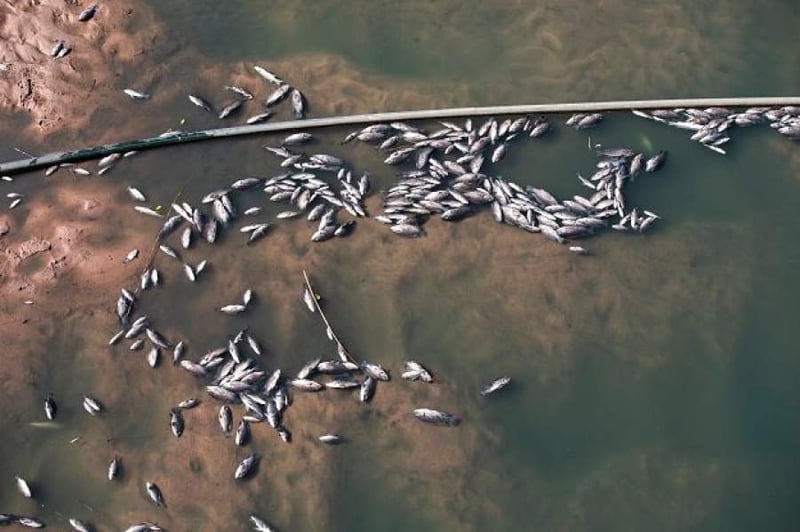Zero Business & Regulatory Accountability… Do we just accept this?
Submitted by: Tebogo Save to Instapaper
Burt Rodrigues CEO of Biodx gives his thoughts on environmental business regulatory procedures and the recent fire at the agro-chemical giant UPL’s warehouse in Durban.
By now we’ve all read and seen footage of the horrendous fire at the agro-chemical giant UPL’s warehouse in Durban. In what is described as a ‘hazardous dangerous chemical fire’ which not only put firefighters lives at risk, not knowing what they were walking in to, but which has caused long-lasting environmental damage to the land, beaches, rivers, estuary and ocean.
According to news reports there were a number of chemicals stored there that have been banned in multiple countries. Add to this the fact that within the vicinity to this warehouse were schools, a golf estate, a busy Makro store and one of South Africa’s main tourism destinations, Umhlanga. Luckily the school was on holiday, otherwise the health hazards could have been even more dire.
The real question here is how did UPL get permission to build such a chemical hazard in this area and then somehow avoid the regulatory process that includes the environmental and risk studies by the National Environmental Management Act (Nema) and the Occupational Health and Safety Act (OSHA). Under Nema, if you store more than 80m3 of “dangerous goods” it’s a listed activity and requires a basic assessment report; more than 500m3 requires a full environmental impact assessment (EIA). According to reports the warehouse stored more than 6 000m3 of “crop solution products”, with more than 500m3 containing chemicals considered so dangerous they’re banned elsewhere in the world!
Despite denials by the company that it acted negligently, ongoing enquiries will hopefully divulge the truth and you’d like to think the prevention of this ever happening again. But can we trust this assurance?
The tip of an iceberg
According to Burt Rodrigues, CEO of Biodx, “This isn’t the only such unregulated facility in South Africa. It’s only come to people’s attention now because of the results of the fire. The failure of the regulatory bodies to prevent this has now led to KZN not only facing environmental problems but also the loss of one of the biggest suppliers of agro products.
“In a stringent regulatory environment this wouldn’t happen. Society needs to understand why such regulations exist. The lack of will by the regulatory bodies and the lack of will by the manufacturer to comply without anyone demanding a change will see this situation just carrying on.”
Latest Press Articles
- Take the Rights Path - Confronting the Intersection of Gender-Based Violence and HIV in South Africa
- Creating Awareness and Empowering South Africans - The Importance of Having a Will
- INITIATIVE LAUNCHED FOR THE UNSUNG HEROES AMONG US
- Heartbeats Worldwide's Sixth Edition - Elevating Mental Wellness in the Entertainment Industry
- Introducing Tshegofatso Precious Lepedi - A Fashion Visionary Redefining Creativity
- Introducing Award-Winning Social Media Sensation Olwethu Makopeni a multifaceted influencer making waves across industries
- Introducing Ayanda Sibisi a rising gospel sensation set to make waves in the music industry
- Well-Established DJ and Producer Basil makes waves with Debut Album Love Like Mist
- T-BO Touch is proud to introduce touch mansions a real estate agency with inclusive credit solutions
- The Need To Revolutionise Sustainable Farming Practices - and how to do so on our own soil
- Official statement from the family of Billy Lesedi Masetlha following his passing
- Finance Magnates Africa Summit Brings Together Experts to Explore Online Trading, Fintech, Payments, and Crypto in Africa
- The Importance and challenges of Financial inclusion
- Adminpro on The Go offers Special Packages for Small Businesses and Entrepreneurs to help Boost Administration
- WIN with The Rand Show
The Pulse Updates
- Xlink Crowned Technology Company Of The Year At The Africa Tech Week Awards 2025 (June 5, 2025)
- Celebrate International Day Of Play With The Weirdest (and Most Wonderful) Toys Of 2025 (June 4, 2025)
- Switching On The Future - Landmark Electricity Expo Comes To Joburg (June 3, 2025)
- Timeless, Bold, And Distilled With Care - Just Like Dad (June 2, 2025)
- New Report Reveals Msme Funding Realities In South Africa – And What Must Change (May 30, 2025)
